Better for the climate: go to a conference by train
-
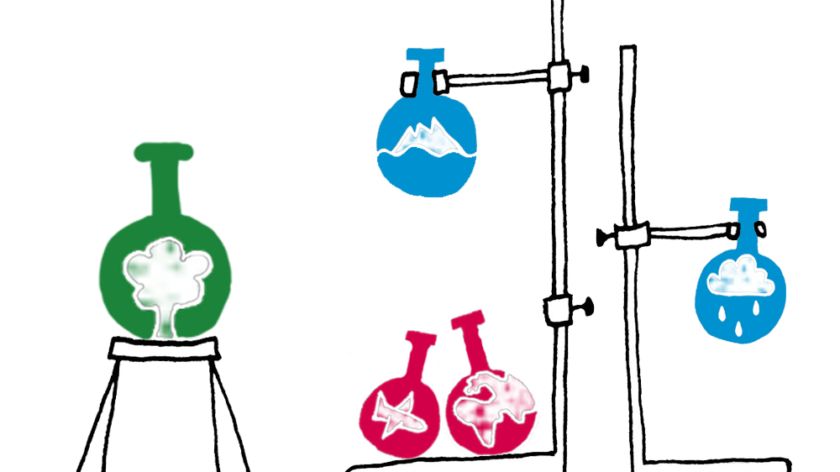 Illustratie: Simone Zwitserloot
Illustratie: Simone Zwitserloot
A single flight from Amsterdam to Bangkok emits more than a tonne of CO2 – as much as an average household does in a month and a half. Can you as a scientist (or environmental scientist) just continue to casually hop on a plane to a conference? 'In principle, we use Skype as much as possible.'
A headline from de Volkskrant newspaper: ‘Aviation is the nail in the climate’s coffin’. If the aviation sector continues to grow, it will be impossible to achieve the climate goals agreed in Paris. After all, flying is pretty bad for the environment. A single one-way flight from Bangkok to Amsterdam will – according to calculations by Dutch environmental organisation Milieu Centraal – emit as much CO2 as an average household does in one and a half months.
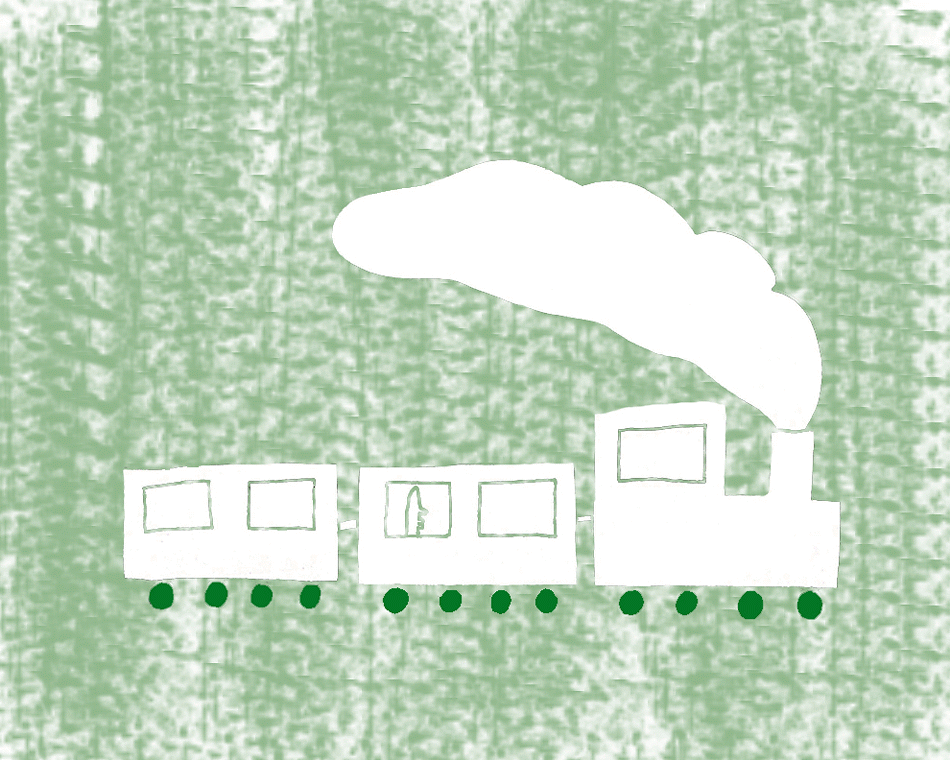
In an opinion column in The Guardian last month, Peter Kalmus, a British researcher at NASA, called on his fellow scientists to fly less often. He calculated that scientists had added about 30,000 tonnes of CO2 emissions to the atmosphere by travelling to the climate conference he had just attended. Meanwhile, Kalmus himself only travels to conferences by train – or he simply does not go. On his blog No Fly Climate Sci, he collects stories from scientists who, like him, now avoid taking planes.
Botswana
A more responsible flight pattern for scientists is now being considered in Nijmegen. For instance, Rosalie van Zelm, an assistant professor of Environmental Science, takes the train as often as possible. ‘Warsaw, Copenhagen, Zurich, Lausanne’, she recounts. ‘The groups we work with often go by train to a conference too. It’s great to do, and we’re also choosing an environmentally friendly option by leaving the airplane on the tarmac.’ Van Zelm only takes a plane when a destination is far away or difficult to reach. ‘There’s no longer a direct train connection to Copenhagen, which makes flying there a bit more attractive.’
‘You can’t hide behind ignorance about the impact of flying’
Kiane de Kleijne is a junior researcher at Radboud University and is collaborating on a report for the international climate panel IPCC. This means she has to travel to international meetings on a regular basis. So far, she has managed to travel to all of them by train. ‘But in a few months, we need to go to Botswana. That’s going to be difficult.’ According to her, it is not only environmental scientists who should worry about their flying hours. De Kleijne: ‘As a scientist, you must have faith in science and know how important it is to reduce our emissions. You can’t hide behind ignorance about the impact of flying.’
Henk Siepel, Professor of Animal Ecology, demonstrates that you do not have to take a plane for a long journey. He once took the train home from a working visit to China. ‘First, six days with the Trans-Siberian Express to Moscow, and then another day to the Netherlands’, he recalls. ‘It’s a lot of fun to do once; I highly recommend it. But, of course, I can’t always take that much time to travel.’ Siepel used to fly to conferences and meetings four or five times a year, but now he tries to keep it to one round-trip a year. He could not really do anything else, he thought, after he co-wrote a report in 2011 about the disruptive effects of aviation on animals. ‘So I can’t carry on contributing to the problem myself.’
Corridors
One commonly suggested solution to reducing flight hours is the use of digital resources. In the era of Skype and video conferences, it seems pretty old-fashioned to come together for a non-digital discussion. ‘In principle, we use Skype as much as possible’, Siepel says. ‘Meetings via Skype also go well as long as you make good agreements about who will say something when and how you can interrupt each other.’ An extra advantage: a video conference saves a lot of travel time and money, in addition to reducing emissions.
‘But I still haven’t experienced a virtual conference’
Environmental scientist Van Zelm also regularly meets with people on the phone. In spite of this, she still thinks that you cannot escape the need to attend a conference once or twice a year. ‘By coming together, you can make an enormous amount of progress in a short space of time. You can’t just stop attending them completely. You can, of course, take a good look at where you organise a conference, and choose a place that requires as few flight hours as possible.’
Siepel agrees with this. ‘It’s still quite important to be able to have something to eat at a conference or have a drink with your colleagues. You can try to replace a conference, but I still haven’t experienced a virtual conference. And the opportunity to run into one other in the corridors and exchange information is an important factor too. You can’t do that on Skype.’
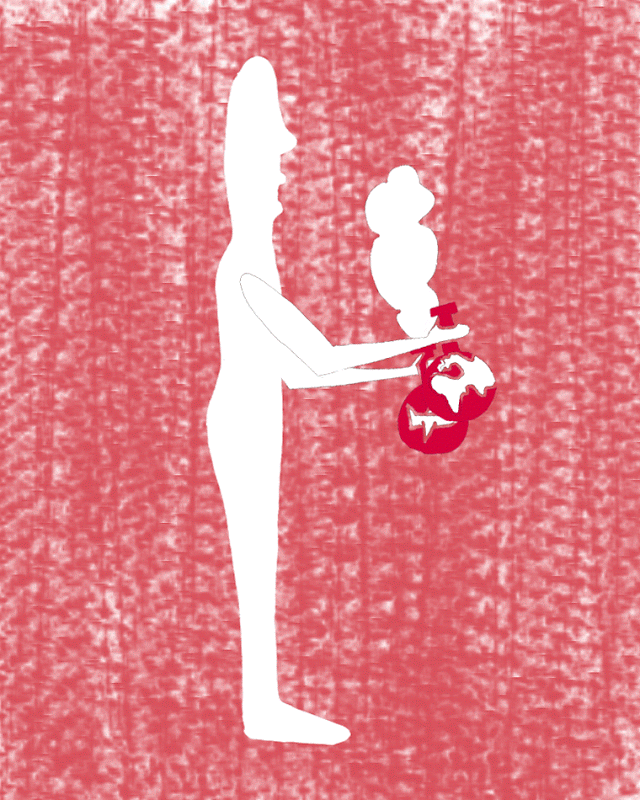
De Kleijne will fly to an IPCC meeting in Botswana in a few months. This is not an energy-efficient choice, she realises. ‘But you can’t force the co-authors from southern countries to organise all the conferences in Europe. We’re just happy that someone took the trouble to organise it.’
Travel agency
Van Zelm, De Kleijne and Siepel have all noted in their areas of environmental science that people are at least thinking about reducing the number of flight hours scientists accumulate. Someone who takes the train to a conference often receives positive remarks. The question is whether any attention is being paid to the theme in other scientific areas. Flying is the norm, De Kleijne realises. ‘Of course, it’s also really cool for young researchers to go to a conference in another part of the world.’
The university could therefore play a pioneering role, according to De Kleijne. For instance, by supporting video conferences. ‘I’ve noticed that in teleconferences with a team of authors, things often go wrong with the sound. If people had more confidence that the video conference equipment would work properly, this would lead to a greater willingness to sometimes organise meetings in this way. For this to happen, you need a service that can guarantee the quality.’

Another possible option is the setting up of a campus travel agency that chooses environmentally friendly options. Wilma de Koning, Vice President of Radboud University and chair of the Sustainability Programme Board, emailed us to say that all ideas are welcome. ‘How can we reduce air travel without compromising the development of science? We want to explore these possibilities together in the near future.’
So, to be continued. Until then, it is up to scientists themselves to keep their flying hours under control – even if it’s only for their own sake. Siepel: ‘Recently, I had a conference in Subotica, Serbia. My colleagues who flew there had to change planes in Munich and Belgrade and arrived completely exhausted. I took the train all the way from Arnhem, with only one change in Vienna. I was able to work comfortably en route and arrived feeling refreshed. So the train isn’t such a bad option after all.’
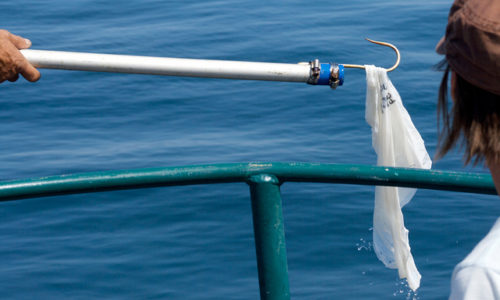
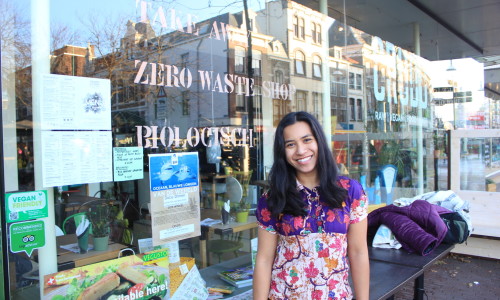
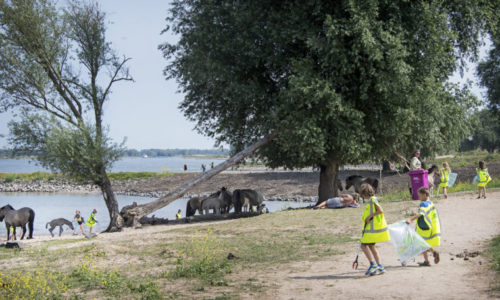

Rupke (oren groter dan het kupke) schreef op 8 februari 2018 om 14:49
En is die “travel agency” dan ook te gebruiken voor vakanties van personeel?
Dan sla je twee vliegen in 1 klap. Met de trein naar de andere kant van de wereld is niet zo handig.
Jantje schreef op 8 februari 2018 om 15:09
in 20 years we have only 1 problem left.
To much people “en de Nederlandse is spoorloos verdwenen”!
Humanity is the biggest problem. Stop making children and all the problem resolves automatically.